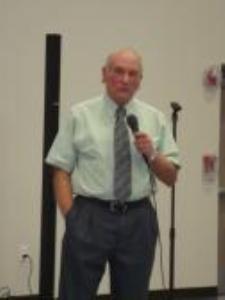Hi:
I'll take these questions one at a time. As a reminder, signal phrases are used to introduce quotes, and can be moved around in the sentence.
- If you want this signal phrase ("said Stanley") here, then yes, you need a full-stop or period after it to separate the independent clauses. An alternative would be to move the signal phrase to the start of the sentence, as such: Stanley said, "It's fun to get out on a Sunday and race; our team always wins a prize." In the latter example, you can use a period or semi-colon (or em-dash) after "race."
- If you want to keep the signal phrase here, it must be followed by a period. A period, in turn, must be followed by a capital letter. So yes, you will need to capitalize the first word here, even if it's a continuation of the quote.
- In both UK and US English, "race" must be followed by a comma. You cannot have a period here, followed by said [or Said] Stanley, since the signal phrase is a part of the same sentence.
- In US English, final punctuation goes inside of quotes: ... always wins a prize." Or, with a different example, Stanley said, "Did we win the prize?" In UK English, the punctuation typically goes outside of the quotes.
- A comma is used with "and race" in the first sentence because the quote is immediately followed by the signal phrase. You don't have a signal phrase in the second sentence, so a period is the right choice here.
For general rules regarding punctuation, you should consult a writing manual such as Strunk & White's "Elements of Style":
http://users.stat.ufl.edu/~presnell/Various/Strunk-and-White/etes_htm.htm
There aren't any special rules regarding the use of en or em-dashes or colons and direct speech. In general, if SP = signal phrase and QU = quoted text, it should be punctuated like this:
SP, "QU."
"QU," SP.
Or you can put the signal phrase between a quote, like this:
"QU," SP, "QU."
In this last example, the entire quote must be a single complete sentence; in your example above, the quoted material comprises more than one sentence, obviously.







